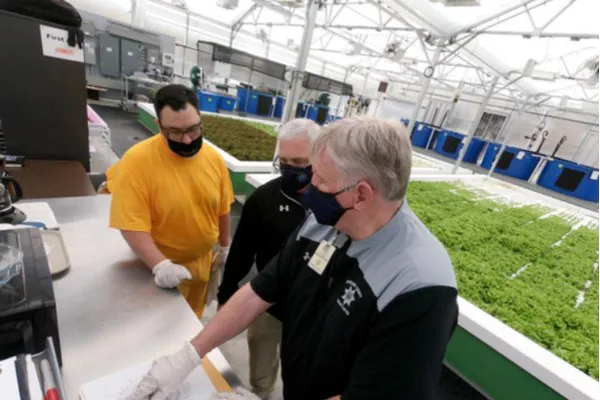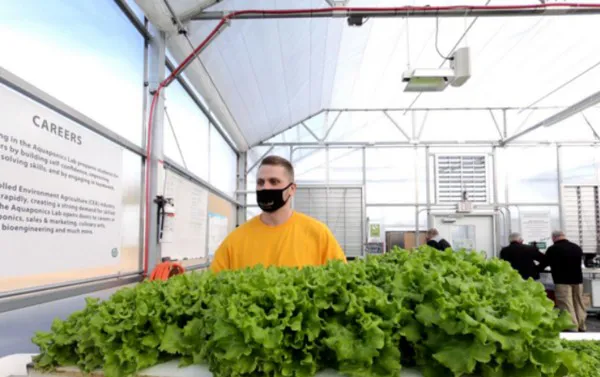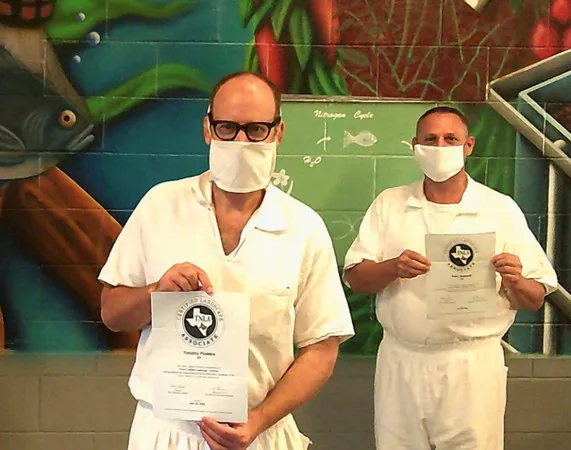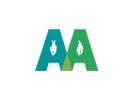The Aquaponics Association developed and is implementing an aquaponics training and certificate program for prison residents. The Program has graduated its first round of participants in Texas and will expand to prisons nationwide.
The team that implemented the project include Mac McLeon, Prison Officer and Urban Ag Instructor for the Windham School District in Texas; Sam Fleming, Executive Director of aquaponics nonprofit 100 Gardens; and Kate Wildrick, Aquaponics Association Director of Community Aquaponics.

Goals of the program
The Aquaponics Prison Program is intended to reduce recidivism by giving prison residents career skills and self-confidence, improving STEM education; and improving nutrition. Recidivism is affected by education and job skills. Some statistics find that up to 60% of prison residents enter prison without completing secondary education, and up to 80% lack significant job experience.
Aquaponics can bring job skills to assist residents upon their release. Students develop skills that can be applied to careers in food production, horticulture, food safety, construction, landscaping, and plumbing.
The curriculum for the aquaponics course is based on the UN FAO’s Small-scale Aquaponic Food Production textbook. Students must pass a five-section test to achieve the aquaponics certificate.

The first course in Texas
The Program was first conducted in the Windham School District of Texas by Program Founder Mac McLeon. In this context, aquaponics was about one-quarter of a larger Urban Farming Course. Other topics in this Urban Farming Course were landscaping, food safety, and greenhouse management. The total Urban Farming Course in Texas is 380 to 460 hours, and the students need to pass 19 different tests, including five on aquaponics. In addition to the full Urban Farming Certificate, graduates also received a dedicated aquaponics endorsement.
In the Texas class, students trained on a basic two-bed “chop system”, as well as a small commercial system with two deep water culture beds and a media bed. Goldfish are the predominant fish in the systems, and lettuce and herbs are the main produce. The lettuce and herbs are donated to the prison and allow for campus-wide fresh salads!
The Program in Texas not only teaches students vital skills it also assists the Texas Department of Criminal Justice with fresh produce and herbs.

Current status and future
In Texas, the first students have already successfully passed the aquaponics course and received their Certificate of Endorsement from the Aquaponics Association.
Currently, the Program is only being implemented in Texas at the Michael, Boyd, Daniel, Roach, and Mountain View prison campuses. Mac and Sam are working together on developing a specific prison-based curriculum for future iterations of the Course.
The Goal is to spread the Aquaponics Prison Program to other prisons nationwide to help prison inmates build healthy lives and expand the reach of controlled-environment agriculture.
 Aquaponics Association
Aquaponics Association4531 Airlie Way, Annandale VA 22003
info@aquaponicsassociation.org
aquaponicsassociation.org
